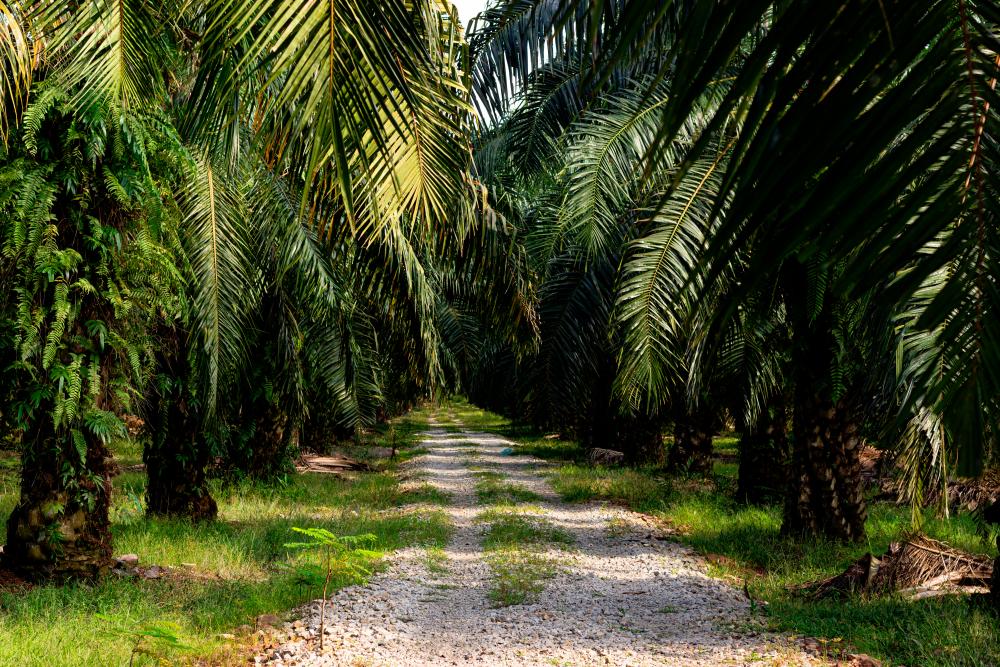PERHAPS one of the highlights of my career was when I was made a chief in a small village in Zaire (now the Democratic Republic of the Congo) in 1986.
After that, a series of events brought me back down to earth.
It was on a normal afternoon during a visit to the plantation and the natural palm groves that I was led to the village by the river Kwenge.
This village was near the town of Kikwit, about 500km east of Kinshasa. Unilever had started its first palm oil mill there in 1911 to supply the soap factories in Liverpool.
In later years, the supplies increased from Malaysia and Indonesia.
Although the business had lost its role as an exporter, it was still an important supplier for the country.
Certainly, the community benefited from Unilever’s presence, employing a population that had experienced not only poverty but also diseases and epidemics such as AIDS and malaria.
Probably even Dr Steve Watson, the director of that region for Unilever Plantations, did not know that I would be installed that day as chief of the village.
It was likely the work of the chef de personnel, an ambitious person from the area.
The people were waiting around an open circle with a stool placed in the middle of the sandy floor.
I was invited to sit on the stool and as soon as the drums began to beat, the chief stepped up with gifts, including three arrows, a drum made of antelope skin and, to top it all, a fly whisk that he placed in my hand.
It was a symbol of power.
The chief’s hands shook slightly.
“You are the chief of this whole village and we are your people now. In your absence, I will be your assistant chief and I will take care of all affairs until your return.”
This was said in the Kikongo language, translated into French by the chef de personnel in a loud and unnecessarily lengthy manner to impress everyone, as I looked around me, and then translated into English by Dr Watson.
He was a Scot who had worked with me in Pamol Sabah and was now in charge of areas extending to the Kasai River.
For the next few days, I travelled with him to see the other plantations, at Mapangu and Bongimba, and I was warned in advance to take my pills against malaria.
In Kikwit, I was reminded of the real risk when I visited a young Belgian engineer at the company rest-house. He lay in bed, shivering.
A transport was arranged to take him to Kinshasa.
But soon after I returned home to Cobham in Surrey, I developed a fever and my body shook. It went on for a few days.
When I became delirious, Maznah took me back to the clinic and suggested to the young doctor: “It could be malaria treatment that he needs.”
The young doctor changed the medicine.
Probably malaria cases were rare in that small town before.
I stopped shivering but still felt feeble when I returned to the office.
Waiting for me were a few messages.
The first, with regret, informed me that the young engineer had died before he arrived in Brussels.
The others concerned changes in top management.
In Malaysia, Pamol had a new chairman who came from Unilever’s factories side and had not previously seen a plantation.
It was a time when many businesses were struggling.
This was a period that followed diversification – a mantra that didn’t always work – ending with the cutting off of parts that were considered non-core. The heroes of the day were directors who boasted about the number of managers they had laid off.
In Unilever’s case, the company decided to slot excess managers where it could and Pamol was not excluded.
The process had shifted from selecting people experienced in plantations.
This shift confirmed the fears that deterred managers from accepting overseas assignments, uncertain if they could return.
In my case, I had been based in London for three years.
Leslie Davidson had asked the personnel department to send me an offer letter for the position of managing director in Cameroon.
Barry Mack, who was there, had resigned for health reasons.
I had discussed this with Maznah and her answer was simple: “When you were sick, I sat by your bed each day, thinking how I might have to pull the children out of school and bring your body home in a box. I don’t want that stress anymore.” I had to refuse the job.
The next offer was to be the director of personnel in DR Congo for Unilever, with its vast business there.
The significant hardship allowance was tempting.
I was to take over the role from Colin Bewick.
I remembered supporting John Dodd, the plantations director, who had insisted on Colin’s departure. I had no idea that one day I’d be in this situation.
Maznah’s response was the same: “Let’s go home and you can look for another job.”
I spoke to Leslie Davidson. We remained close friends, but I knew that with the way head office operated, the decisions weren’t his alone.
“Go with Maznah and the children and stay for a month in Kuala Lumpur. See if you can find a job there. I’ll see what I can do.”
On the long flight back, I had much to think about.
The three children were on school holiday and although glad to be on a plane, they didn’t fully understand what was happening.
Soon I would be jobless. I felt powerless.
Even the fly whisk I kept at home couldn’t help me now.
The writer has extensive experience in the management of oil palm plantations.
Comments: letters@thesundaily.com









